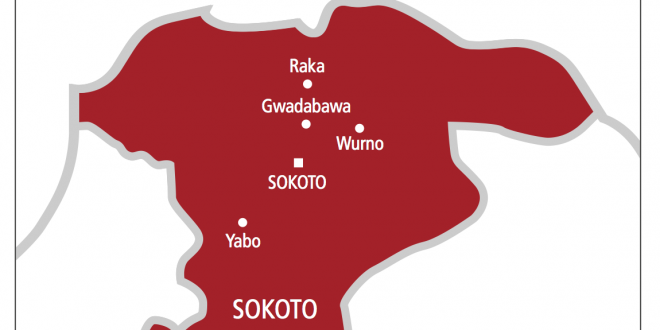Communities along Nigeria’s border with Niger have firmly dismissed allegations by Nigerien junta leader, Abdurrahman Tchiani, that a foreign military base exists in Sokoto State. The allegations, centered on a purported forest named ‘Gaba,’ were denounced as baseless by local leaders and residents.
The claims stirred controversy, raising concerns about potential strain on the historical and socio-economic ties shared by communities on both sides of the border. Sokoto State, which shares boundaries with Niger through Illela, Gada, Tangaza, Gudu, and Sabon Birni local government areas, is a significant region in the legacy of the former Sokoto Caliphate, a symbol of cultural and historical unity between the two nations.
No Forest, No Base
The Sarkin Arewan Araba, Alhaji Abubakar Yusufu, a prominent leader in the Illela Local Government Area, emphatically refuted the existence of a “Gaba” forest or any foreign military presence. Speaking from Araba, a border community just meters away from Konni in Niger, he described Tchiani’s allegations as unfounded and damaging.
“There is no such forest in Araba district or Illela local government, and we don’t see any foreigner in our villages,” Yusufu said. “It is a tea joint discussion, and it risks severing the strong relationship between us and our neighbors in Niger Republic.”
Instead of foreign military bases, Yusufu revealed a different reality: Nigerien security operatives frequently enter Nigerian territory. “They come and work with our vigilantes to maintain peace in surrounding communities,” he added.
Historical and Social Connections
For decades, the border regions have functioned as an intertwined socio-economic unit. Residents of Sokoto and Niger frequently engage in trade and cultural exchanges. However, these ties now face threats from the Nigerien leader’s accusations and ongoing tensions at the border.
Malam Muhammadu Danladi, a resident of Araba, dismissed the claims as “unfounded and damaging to Nigeria’s reputation.” He also highlighted increasing harassment by Nigerien security forces.
“For the past six months, they have been seizing goods from Nigerians at the border for no reason. Yet their people enjoy free access into our country, buying goods and leaving without harassment. We need our government to address this,” Danladi said.
Economic Implications
Commercial activity has suffered as a result of the strained relations. Muhammad, a commercial motorcyclist who frequently crosses into Niger to transport goods and passengers, described the escalating challenges.
“There are no foreign bases in our communities. Instead, we face inhuman treatment from Nigerien security operatives,” Muhammad said.
Such grievances have compounded frustrations among Nigerian residents, who argue that their hospitality toward Nigeriens is not reciprocated.
Community Reactions from Gada LGA
Residents in Tabanni Siddi, Gada Local Government Area, also denied the existence of a foreign base or the mythical Gaba forest. Like their counterparts in Illela, they called the Nigerien junta’s claims baseless.
“This is just an attempt to tarnish our country’s image,” one resident remarked. “We are peaceful people, and no foreigners have established a base here.”
Calls for Diplomatic Action
The accusations come at a time when diplomatic relations between Nigeria and Niger remain delicate, especially following Niger’s recent coup. The junta’s leader, Tchiani, has repeatedly made controversial statements targeting neighboring countries.
The district head of Araba cautioned against escalating rhetoric that could strain the long-standing historical ties between the two nations. “Our governments must focus on fostering unity and addressing the harassment Nigerians face at the border,” he said.
The Nigerian government has yet to issue an official response to these allegations. However, analysts believe that such claims are politically motivated, designed to distract from internal challenges facing the Nigerien junta.
Contextualizing the Accusations
Experts in West African politics note that Niger’s new leadership is under immense pressure to consolidate power following the military coup that ousted President Mohamed Bazoum. Allegations against neighboring countries could be an attempt to shift focus from internal instability.
“This is a classic diversion tactic,” said Dr. Ibrahim Musa, a political analyst. “By pointing fingers at Nigeria, the junta aims to rally nationalist sentiments and deflect from its own governance issues.”
Way Forward
As the controversy simmers, border communities are urging calm and calling on both governments to prioritize diplomacy. Economic activities and communal peace depend on sustained cooperation between the two nations.
“The shared history between us is too significant to be undermined by baseless accusations,” Yusufu said. “We must work together to address mutual concerns and ensure peace in our regions.”

